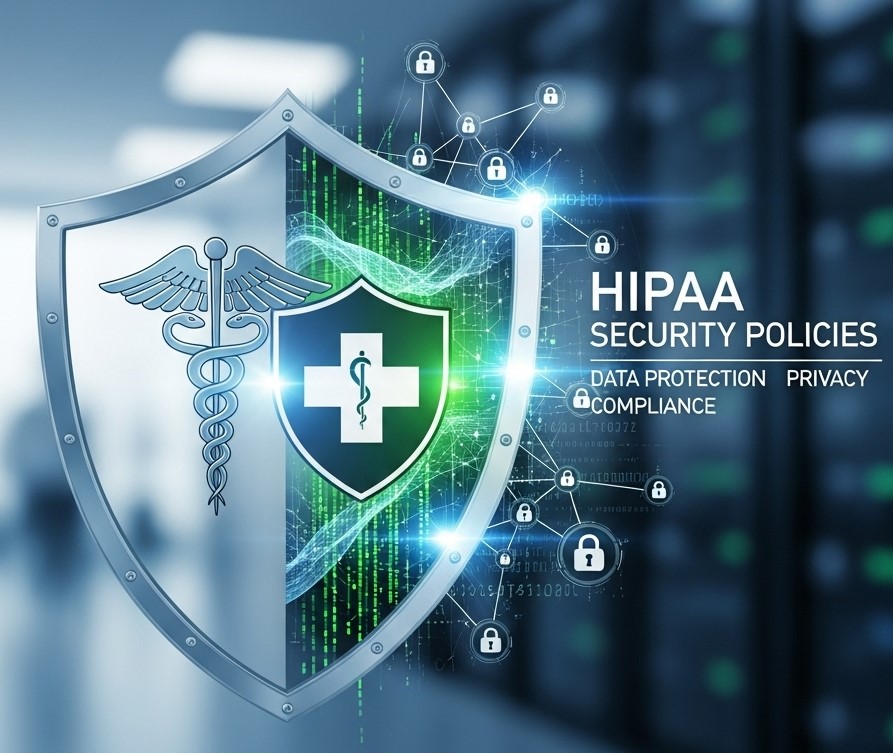HIPAA Security Policies Explained: A Complete Guide for Healthcare Providers
In an age where cyberattacks on healthcare data are rising, HIPAA Security Policies serve as a vital shield to protect sensitive patient information. If you’re a healthcare provider or IT manager, understanding and implementing these policies is crucial for regulatory compliance and data protection.
Here’s your comprehensive guide to what HIPAA Security Policies are, how they work, and why they matter.
What Are HIPAA Security Policies?
HIPAA Security Policies are formalized protocols and procedures that guide how electronic Protected Health Information (ePHI) is handled, secured, and accessed. Required under the HIPAA Security Rule, these policies are essential for covered entities (like hospitals, clinics) and business associates (such as billing services or cloud providers).
The Three Pillars of HIPAA Security
HIPAA’s Security Rule breaks down its requirements into three safeguard categories:
- Administrative Safeguards
- Risk analysis and management
- Workforce security and training
- Security incident procedures
- Physical Safeguards
- Limiting physical access to electronic systems
- Secure workstation use
- Policies for equipment disposal and reuse
- Technical Safeguards
- Unique user IDs and secure logins
- Automatic session timeouts
- Audit controls and activity logs
- Secure transmission of ePHI
Why Healthcare Providers Must Prioritize Security Policies
Failing to implement robust HIPAA Policies can result in:
- Data breaches
- Financial penalties
- Regulatory investigations
- Loss of patient trust
Moreover, as telehealth and cloud computing grow, the complexity and importance of these policies continue to increase.
Examples of Security Policies You Need for HIPAA
To meet HIPAA’s standards, your organization should maintain documentation for policies like:
- Email and Internet Use Policy
- Workstation Use and Security Policy
- Access Control Policy
- Business Associate Agreement Policy
- Security Awareness and Training Policy
These should be tailored to your unique IT systems and organizational workflow.
Keeping Policies Up to Date
Security threats evolve. Your policies should too.
- Review policies annually
- Update after major system changes
- Test your incident response plan
- Regularly retrain your staff
⚖️ What Happens If You Don’t Comply?
Non-compliance with HIPAA Policies can lead to:
| Violation Tier | Penalty Range (per violation) |
| Tier 1 (Unaware) | $100 – $50,000 |
| Tier 2 (Reasonable Cause) | $1,000 – $50,000 |
| Tier 3 (Willful Neglect, Corrected) | $10,000 – $50,000 |
| Tier 4 (Willful Neglect, Not Corrected) | $50,000+ |
Pro Tips for Healthcare Providers
- Assign a Security Officer to oversee policy implementation
- Use encryption and strong passwords across all systems
- Maintain audit logs to track access to ePHI
- Ensure role-based access to minimize exposure
Conclusion
HIPAA Policies are more than regulatory paperwork—they are essential for keeping patient data safe and ensuring your healthcare organization remains compliant.
Need help developing policies? Use HIPAA Security Policy templates or contact a compliance expert to customize documents for your facility.
